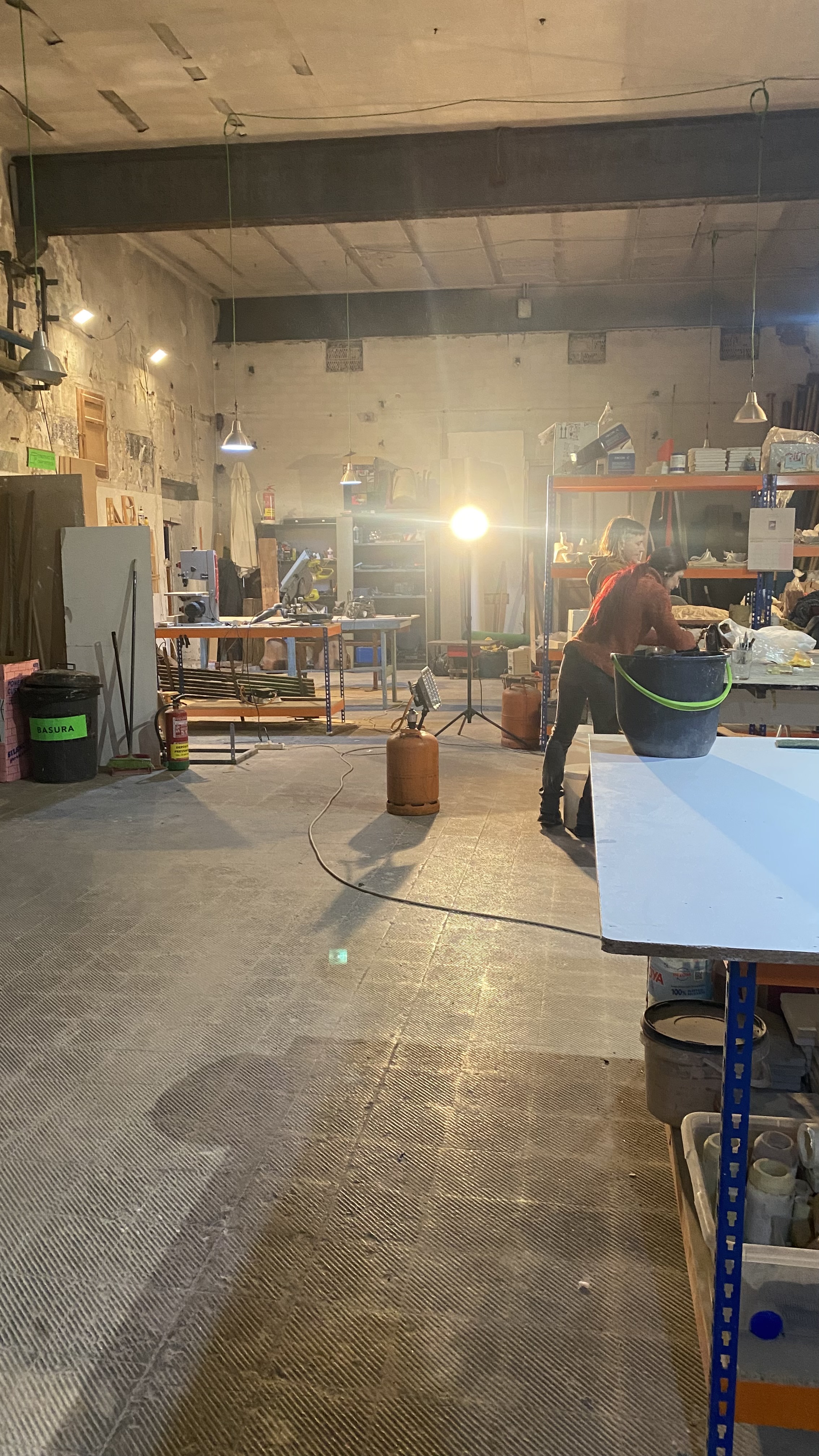Community Engagement¶
Can Batlló¶
We started this seminar by visiting Coòpolis where we met Markel Cormenzana and Mercè Rua. They are part of a design cooperative called Holon, which works with communities to help with different kinds of human transitions.
Markel gave us a tour of the Coòpolis neighbourhood and talked about a cooperative housing project, La Borda, which seeks to facilitate decent, social, affordable housing and a sustainable environment with the aim of promoting new forms of coexistence and generating community through the interrelationship between neighbors.
During the week at Coòpolis we also learned about facilitation and explored a deck of cards called “Group Works”. I found these cards very interesting to visualise all the categories that exist, and it’s a fun and practical way to learn to expand your own limits. I chose the “Playfullness” card because it seems to me that it is very important to always incorporate a game component in all projects, and at the same time, it seemed to me to be a concept that was defined by the very concept of the cards. Also, I looked at another card, “Power of Restrictions”, because during my design process, I always feel that having restrictions makes the design easier sometimes. This concept is related to the “blank page”, where a creative gets lost because of the infinite possibilities of creation.
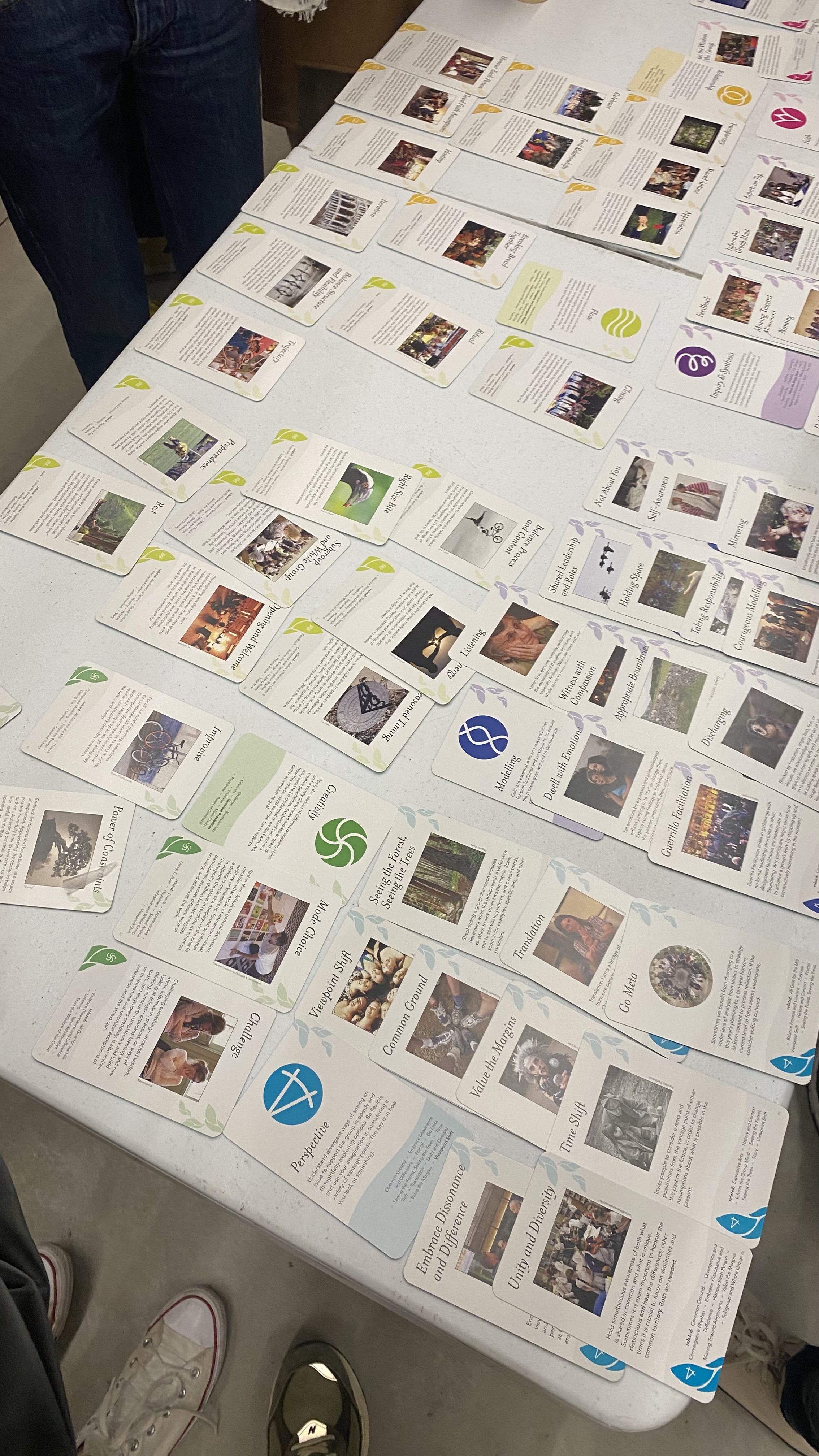
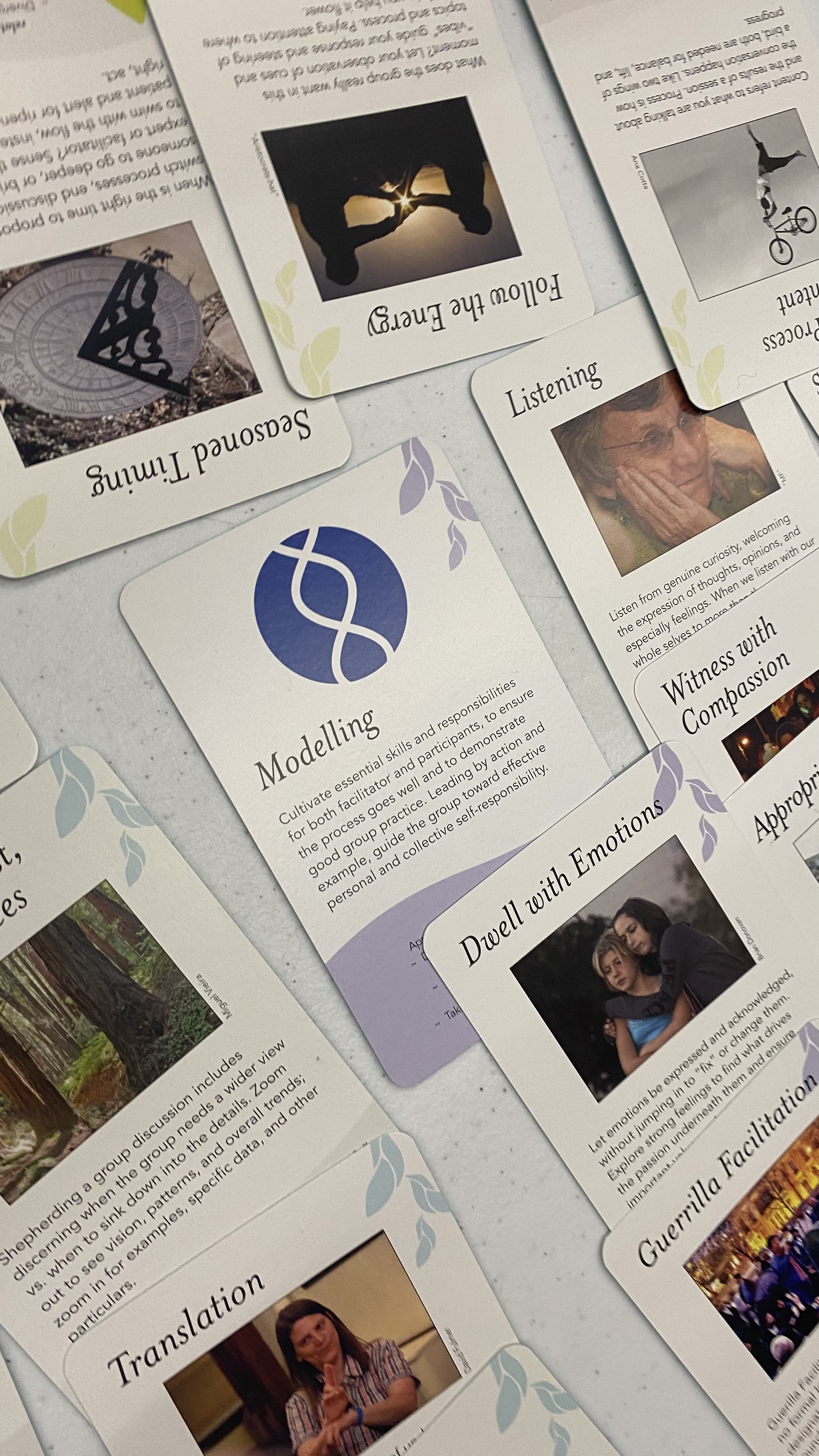
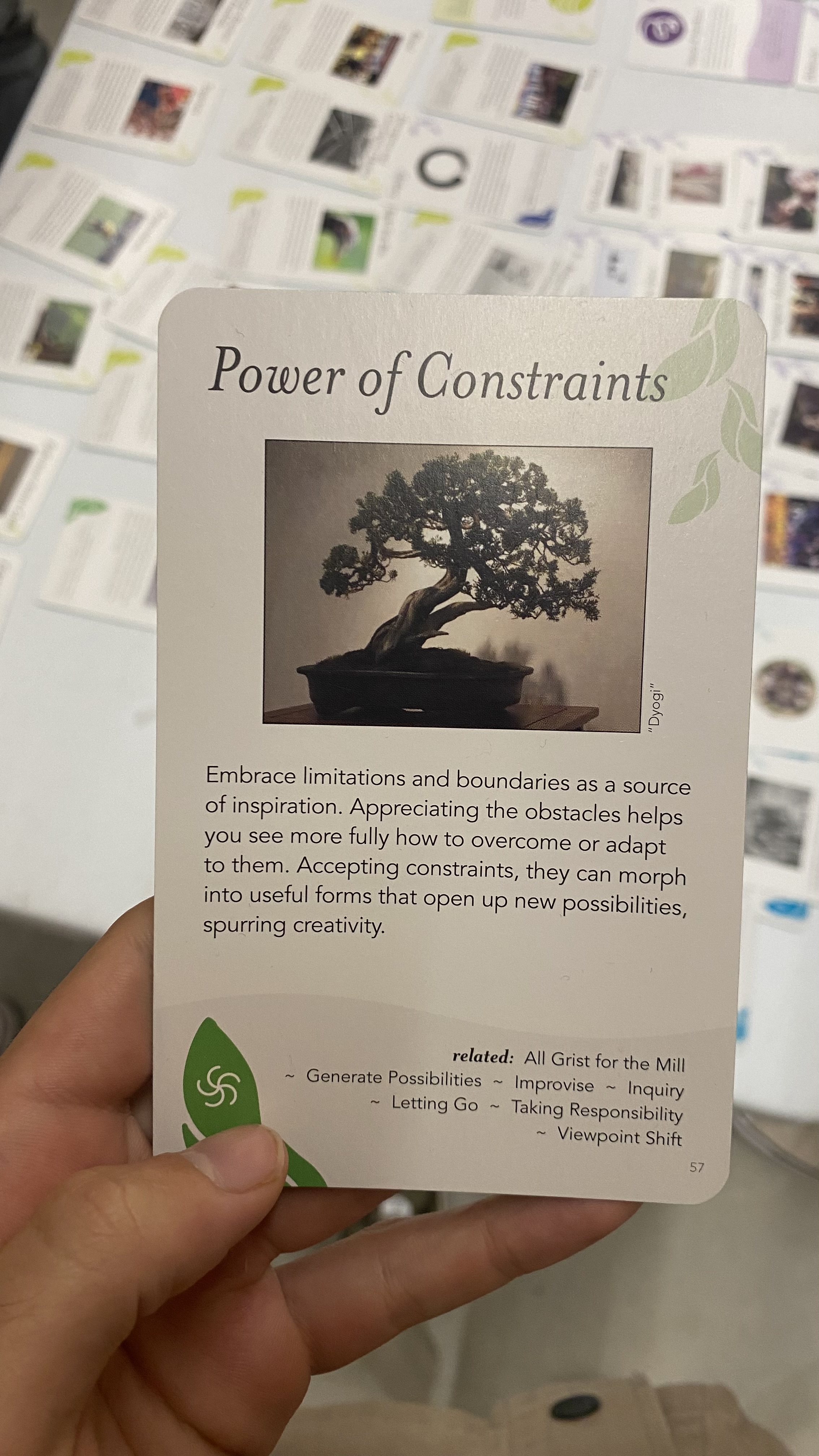
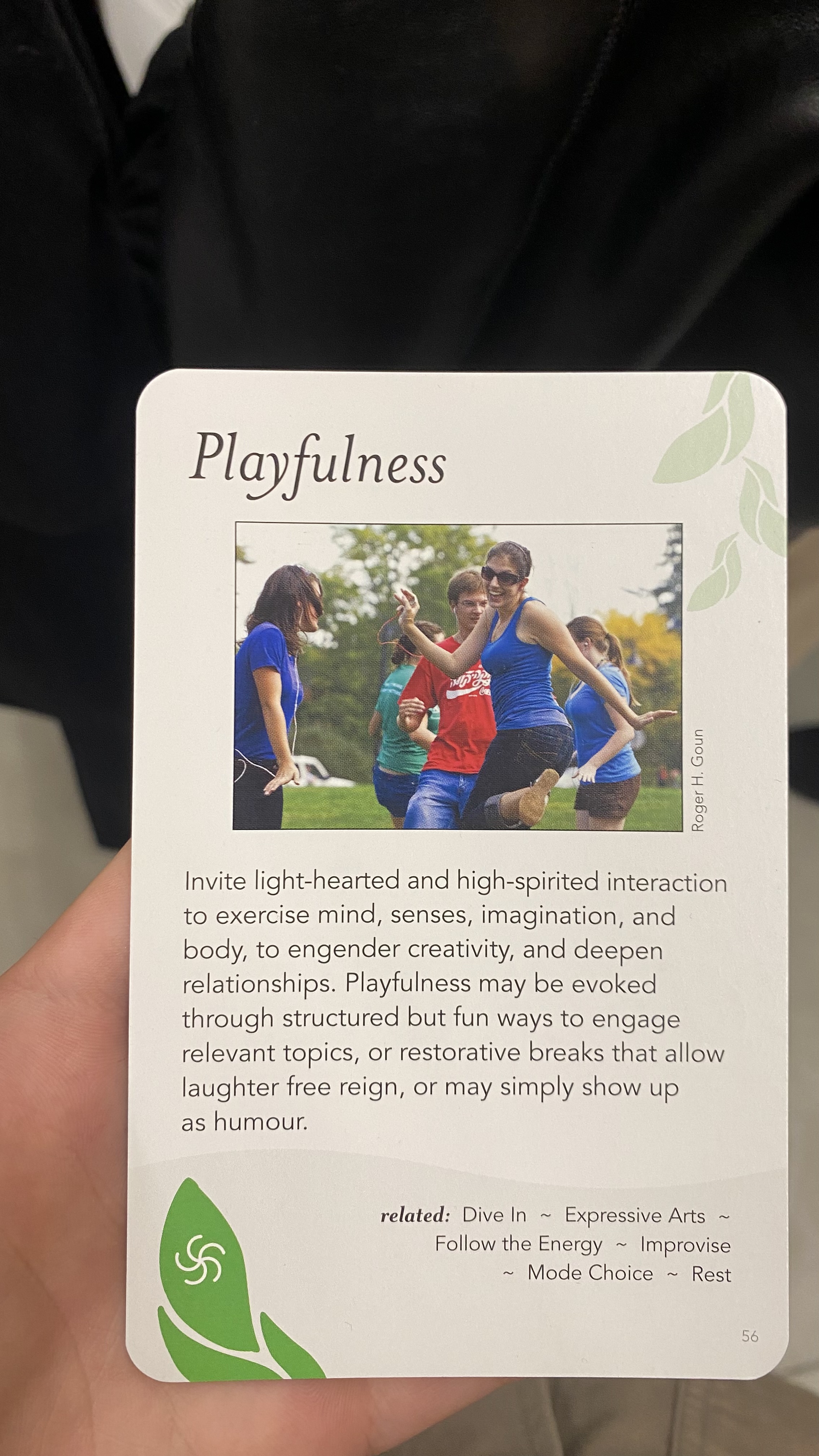
Finally, we did an exercise on creative communities and were assigned an exercise that I have documented below.
Assignment¶
Creatives Community¶
Creative Community:
Mobiele Fietsenmaker – Mobile Bicycle Repairman By Giovanni Putzu mobile bicycle repairman The Netherlands, Brunssum
Context:
Giving cyclists easier access to bicycle repairs.
There used to be at least one bike repairman in nearly every Dutch neighbourhood, but as bicycles have got more reliable, their workload reduced and they closed down. Nowadays there are much fewer such handymen, and the market has been taken over by larger companies. It therefore takes longer to get a bike repaired, and it can of course be difficult actually getting to the repair company.
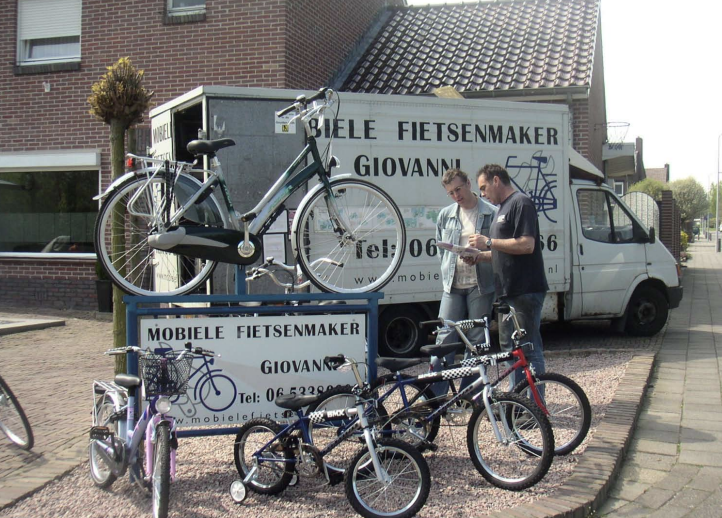
Current Situation:
The project has been going for three years, and has attracted a lot of interest. At the moment Giovanni is the only provider of the Mobile Bicycle Repairman service, but he is ready to recruit other repairmen and give them busses to work in other districts. At the same time, a franchising company ‘Fietsnet’ is preparing a full-scale national project to provide this service (with about 150 vans) all over the country.
Engagement & Limits:
Society: Providing an easy way for people to have their bikes fixed stimulates people to use their bikes more. Environment: Renovating the bikes prolongs the life cycle of the product. Economy: Users get their bikes repaired conveniently for a good price. The popularity of the service means the provider fulfills a clear need.
Some limits could be placed on this service for people who need it regularly. Also, the possible large amount of work that only one van has to cover may be too much.
Theory of Change:
Designing bikes that are easy to dismantle and reassemble and a standard set of spare parts. Designing suitably light and green mobile repair vans. Designing software and equipment to optimise the logistics of the service.
Design Challenges and Opportunities:
Create a system similar to car insurance in which clients pay monthly and receive full service for any problematic situation. This would help the service have a regular income and have faithful clients.
Reflections¶
During this week, I have learned a lot of tools to get immersed in a community and how to become one member more. My project is about ceramics and local traditions, so I decided to start working with ceramicists from Barcelona. I started thinking about doing a workshop to interact with clay and reflect on our feelings and sensations. Working with clay can be a mindful process where you have to understand the material and its qualities to achieve what you want and also be patient while waiting for the rhythm that clay needs.
Together with Marielle, who is looking for love boundaries and also interested in pottery, we organised a workshop in a pottery coworking studio in Poblenou, Barcelona, called El Torn. We had contact with the organiser of the coworking, so it was easy to start engaging people to join the workshop. Before doing this workshop, we did one with our Iaac classmates to practise and see how people follow our instructions and get some feedback.
For the El Torn workshop, we prepared a workbook to have a guide, so participants have something physical to follow, and also to collect feedback to analyse after. The activity was about playing with clay, thinking about our feelings, and trying to find our own definition of love. The workshop went really well, people opened up and shared their feelings, they created lots of different clay shapes to define love and the environment was comfortable and safe for everyone.
With this intervention, I have learned how to contact people and engage them, how to prepare a workshop for a group, how to guide and create a safe environment, and how to participate and be one more member of the group to experience it from a first-person perspective.
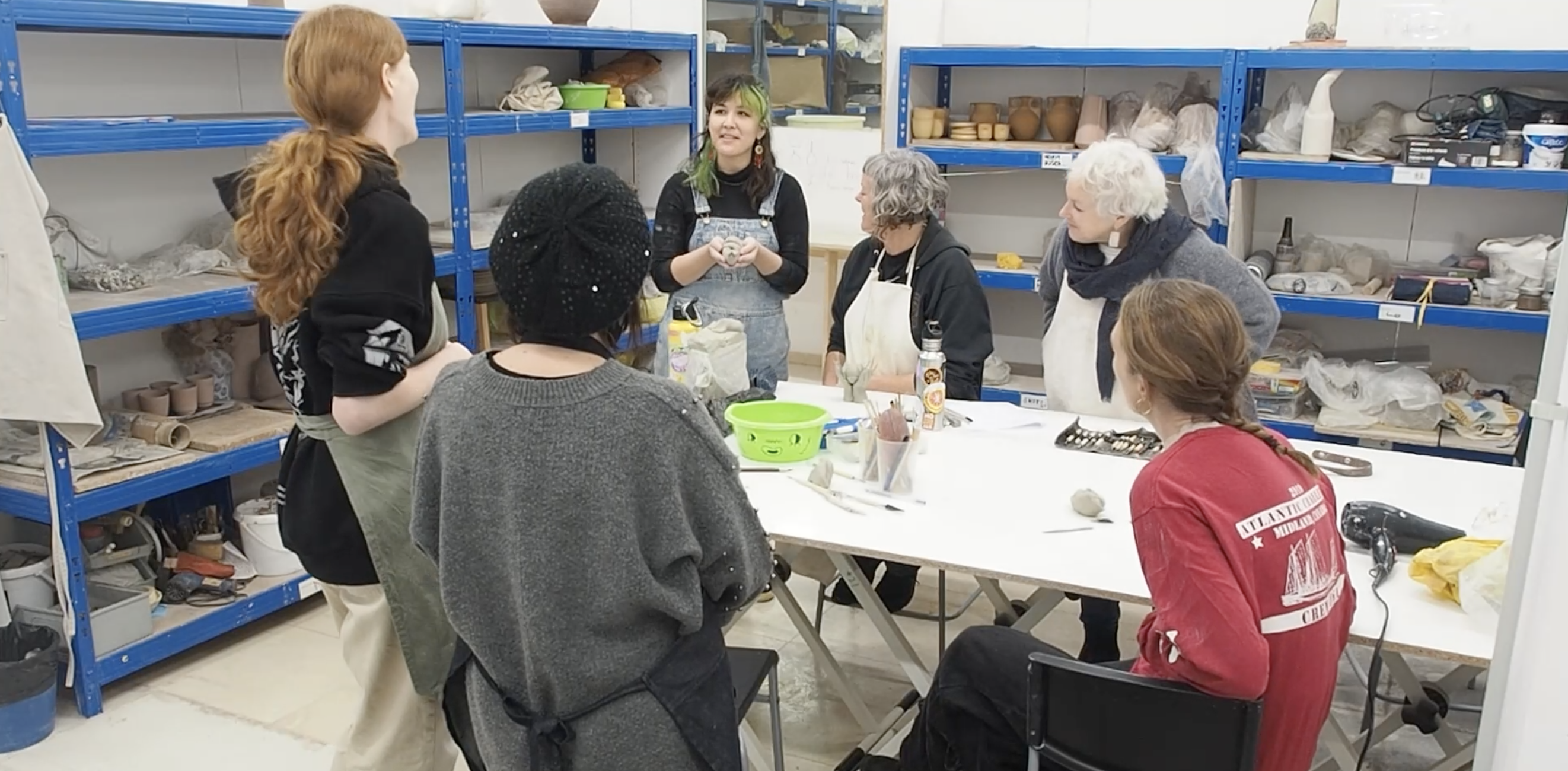
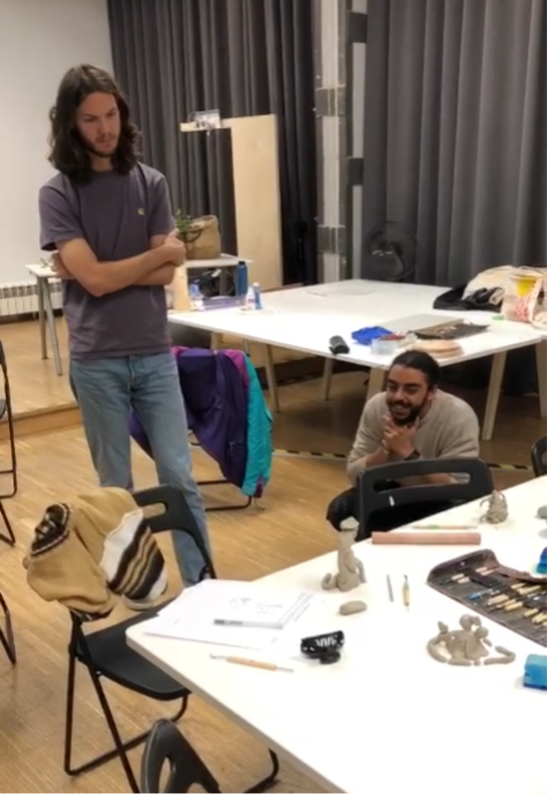
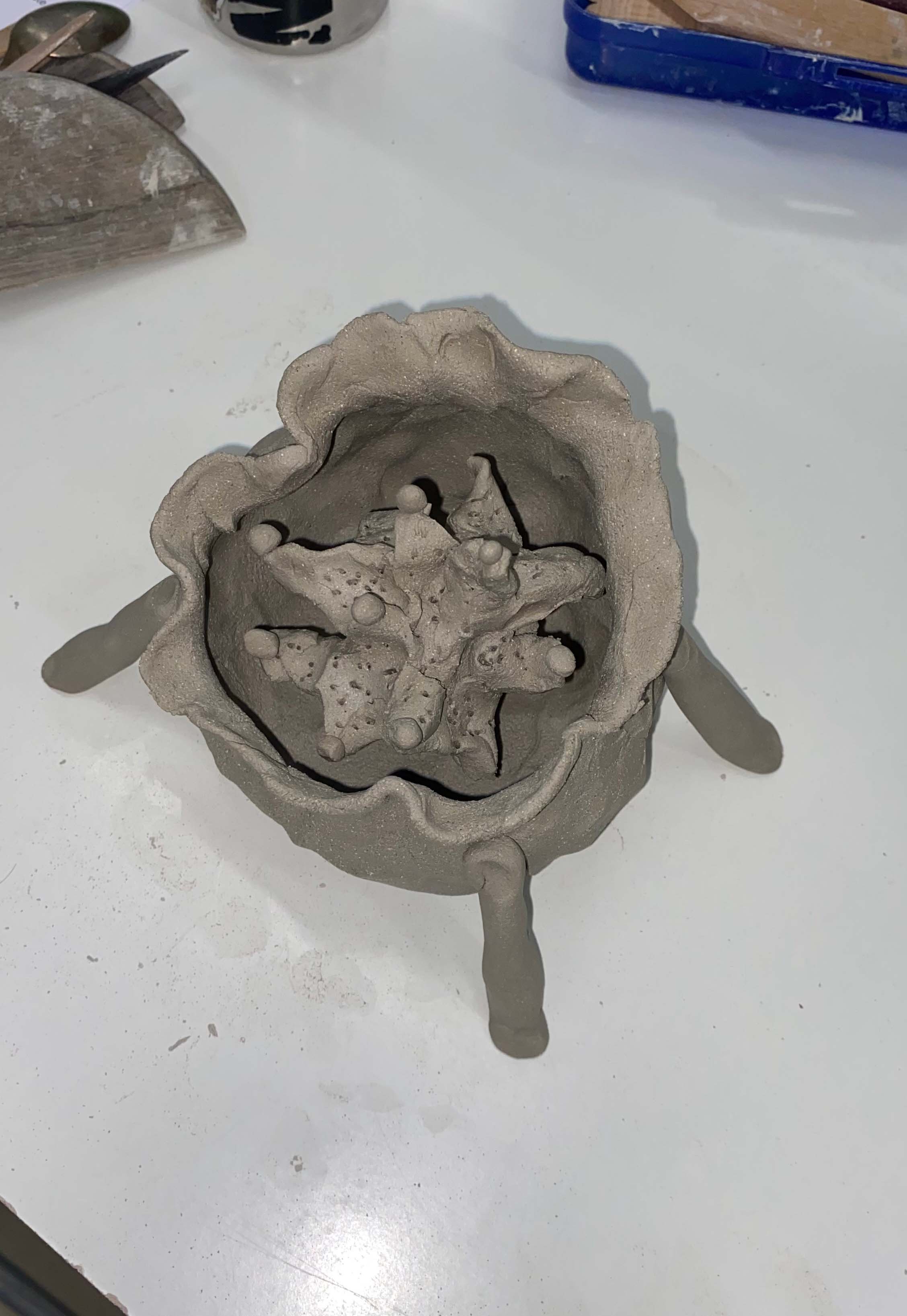
La Escocesa¶
La Escocesa is an artist-led contemporary visual arts organisation and residency space managed collectively through the artists.
